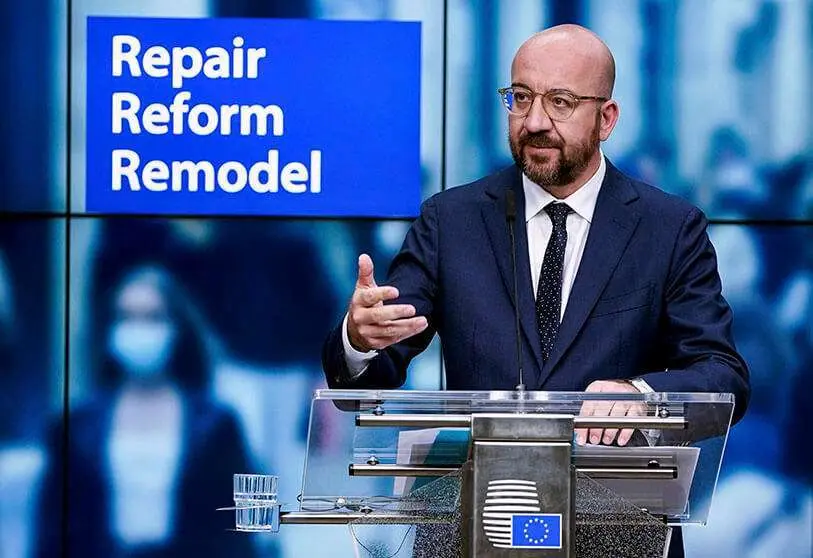EU gives itself three months to respond to Turkey's "game of provocation

The European Union (EU), which has raised its voice against Turkey but left the door open to the possibility of dialogue, is giving itself "until December at the latest" to respond to Ankara's "provocative game" in the eastern Mediterranean, according to a senior EU official. This was one of the achievements of the summit held on 1 and 2 October in Brussels, where the EU-27 finally reached a compromise on sanctioning the Minsk regime and toughening up their stance against Ankara, as requested by Cyprus.
If Cyprus had not managed to lift its veto against the sanctions already agreed on against Belarus if the same standard were not applied to Turkey, the European leaders would have looked "ridiculous" in the eyes of the world, the senior official pointed out to a group of Brussels correspondents, including Efe.
At this latest summit, according to the source, the Member States have become aware that "Turkey is not the problem of Greece and Cyprus, but the problem of the EU", owing to its illegal actions in the eastern Mediterranean and its presence in the Syrian and Libyan conflicts, and in Nagorno-Karabakh, supporting Azerbaijan against Armenia. "We are credible", said the President of the European Council, Charles Michel, at the end of this extraordinary summit of the 27 Member States, dedicated in particular to the EU's external relations.
Now "Turkey has to show that it wants to walk the constructive path with us", added the President of the European Commission, Ursula von der Leyen, at the same press conference.
But if the Turkish President, Recep Tayyip Erdogan, abounds in "provocation and pressure" and chooses the path of "unilateral decisions that violate international law", the EU will use "all its tools", warned von der Leyen.
These "tools" will begin to be applied at the end of this year if Turkey, one of the oldest members of NATO, persists on this path in the waters of the Eastern Mediterranean, since its operations in the area affect the sovereignty of EU member countries, in this case Greece and Cyprus. The final agreement was "the only possible landing zone" of the summit, and therefore, although it was drawn up before it began, it was not put on the table from the outset so as not to spoil it and make room for debate in the Council, according to the source.
If unanimity was reached on the Belarusian issue, it was because the EU managed to convince Nicosia to abandon its veto. But it was not easy, as Ankara was continuing its illegal drilling of Cypriot waters, so President Nikos Anastasiades was demanding a strong message from the EU.
The EU-27 devoted "8 or 9 hours" of the summit to finding a formula that would allow them to show firmness towards Ankara without ruining the progress made in Greece in recent weeks, according to the high official. It was precisely the Greek prime minister, Kyriakos Mitsotakis, who played an important role in the result, showing his support for the Cypriot president and occasionally asking him to moderate his demands, according to the same source.
And although in the end no sanctions were established against Ankara, it was made clear to him that it would be in his interest to be less explosive at a time when the country is being devoured by the economic crisis, according to the senior official.
The Europeans are therefore committed to "implementing a positive political programme of the EU and Turkey" if Ankara accepts "the efforts to put an end to the illegal activities with regard to Greece and Cyprus".Otherwise, they are prepared to use "all the instruments and options at their disposal (...) to defend the interests of the EU and its Member States" and to take "decisions, if necessary, no later than their meeting in December".
That is the framework and the timetable, and from now on it is diplomacy's turn: both Charles Michel and Kyriakos Mitsotakis will meet with Recep Tayyip Erdogan in the coming days.








